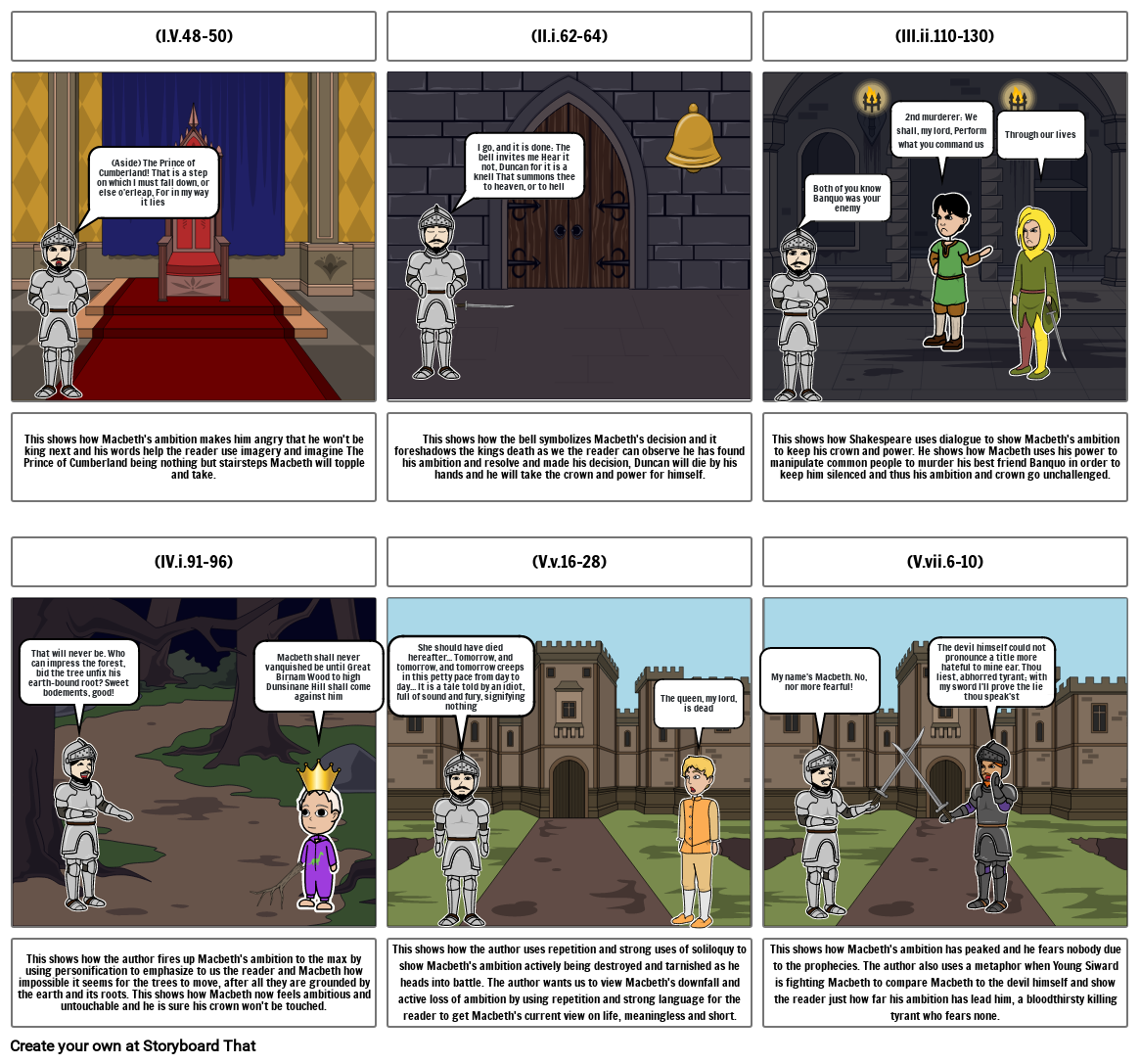Unknown Story

Siužetinės Linijos Tekstas
- (I.V.48-50)
- (Aside) The Prince of Cumberland! That is a step on which I must fall down, or else o'erleap, For in my way it lies
- (II.i.62-64)
- I go, and it is done: The bell invites me Hear it not, Duncan for it is a knell That summons thee to heaven, or to hell
- (III.ii.110-130)
- Both of you know Banquo was your enemy
- 2nd murderer: We shall, my lord, Perform what you command us
- Through our lives
- This shows how Macbeth's ambition makes him angry that he won't be king next and his words help the reader use imagery and imagine The Prince of Cumberland being nothing but stairsteps Macbeth will topple and take.
- (IV.i.91-96)
- That will never be. Who can impress the forest, bid the tree unfix his earth-bound root? Sweet bodements, good!
- Macbeth shall never vanquished be until Great Birnam Wood to high Dunsinane Hill shall come against him
- She should have died hereafter... Tomorrow, and tomorrow, and tomorrow creeps in this petty pace from day to day... It is a tale told by an idiot, full of sound and fury, signifying nothing
- This shows how the bell symbolizes Macbeth's decision and it foreshadows the kings death as we the reader can observe he has found his ambition and resolve and made his decision, Duncan will die by his hands and he will take the crown and power for himself.
- (V.v.16-28)
- The queen, my lord, is dead
- My name's Macbeth. No, nor more fearful!
- This shows how Shakespeare uses dialogue to show Macbeth's ambition to keep his crown and power. He shows how Macbeth uses his power to manipulate common people to murder his best friend Banquo in order to keep him silenced and thus his ambition and crown go unchallenged.
- (V.vii.6-10)
- The devil himself could not pronounce a title more hateful to mine ear. Thou liest, abhorred tyrant; with my sword I'll prove the lie thou speak'st
- This shows how the author fires up Macbeth's ambition to the max by using personification to emphasize to us the reader and Macbeth how impossible it seems for the trees to move, after all they are grounded by the earth and its roots. This shows how Macbeth now feels ambitious and untouchable and he is sure his crown won't be touched.
- This shows how the author uses repetition and strong uses of soliloquy to show Macbeth's ambition actively being destroyed and tarnished as he heads into battle. The author wants us to view Macbeth's downfall and active loss of ambition by using repetition and strong language for the reader to get Macbeth's current view on life, meaningless and short.
- This shows how Macbeth's ambition has peaked and he fears nobody due to the prophecies. The author also uses a metaphor when Young Siward is fighting Macbeth to compare Macbeth to the devil himself and show the reader just how far his ambition has lead him, a bloodthirsty killing tyrant who fears none.
Sukurta daugiau nei 30 milijonų siužetinių lentelių

